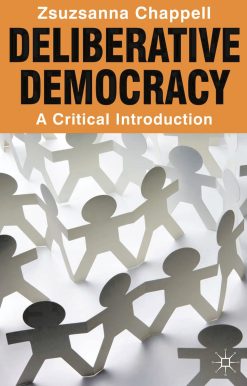Learning For Action: A Short Definitive Account of Soft Systems Methodology, and its use for Practitioners, Teachers and Students
46.00 JOD
Please allow 2 – 5 weeks for delivery of this item
Description
After an explanation of the book’s purpose, the authors provide in Part 1 first an overview of SSM as a whole, then a fleshed-out account with just enough detail and advice to enable the reader to set about using the approach in problem situations of concern. Part 2 describes examples of SSM in action and also pays special attention to one of the most common application areas: that of work in the information system/information technology field. A final chapter in part 2 discusses the difficulties some people have in grasping the true nature of SSM, drawing attention to the inadequacies in much of the secondary literature. Appendices provide an outline of the theoretical considerations which underpin SSM, a guide to sources of further information and illustrations of some of SSM’s techniques.
Additional information
| Weight | 0.33 kg |
|---|---|
| Dimensions | 1.24 × 16.43 × 22.76 cm |
| by | |
| Format | Paperback |
| Language | |
| Pages | 224 |
| publisher | |
| Year Published | 2007-4-2 |
| Imprint | |
| Edition Number | 1st edition |
| Publication City/Country | London, United Kingdom |
| ISBN 10 | 0470025549 |
| About The Author | Peter Checkland is the recipient of the 'Most Distinguished and Outstanding Contributor' Award of the British Computer Society Methodologies Group, 1994 Recipient of the Gold Medal of the UK Systems Society for 'Outstanding Contribution to Systems Thinking' and 1997 Recipient of a Leverhulme Emeritus Fellowship. Now retired from full time university work, Peter Checkland continues his research and writing. |
| Review Quote | "This volume is a concise and definitive account of SSM for all who wish to use, teach or learn about it." (Civil Engineering, August 2008) |
| Back Cover Copy | The approach to tackling messy real-life situations known as Soft Systems Methodology (SSM) was developed in a 30-year programme of action research led by Peter Checkland. The approach is now used and taught around the world, and its development has been described in depth in four books published between 1981 and 1999, which are now regarded as classics in the field. Learning for Action first provides an overview of SSM and its use, then gives a detailed account of the techniques used within it. It also crisply summarizes many accounts of SSM in action in real situations in both private and public sectors, using the pattern: the situation; the use of SSM; outcomes, with references given to more detailed accounts. Also covered are the craft skills which practitioners develop, the theory underlying SSM, and the fundamental shift in thinking away from the systems approaches of the 1960s which its development signalled – namely the transition from 'hard' to 'soft' systems thinking. |





